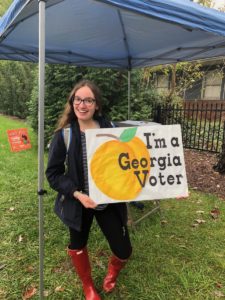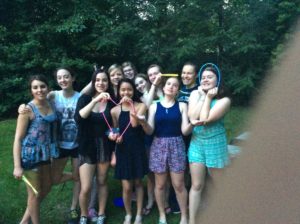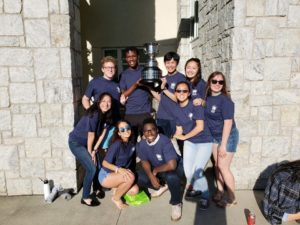I decided to look at The Bobby Jones Scholarship for this post. I only heard about it towards the end of last semester, when two mutual friends received the scholarship. When I found out, I was excited for them but very, very confused. Who is this Bobby Jones anyway and what does this scholarship even do?
I learned that the scholarship was created to honor Bobby Jones, a famous world-renowned golfer and Emory alum who was revered by his peers. The school awards the scholarship to four seniors or Emory graduate students who best represent Emory University abroad at The University of St. Andrew’s in Scotland. This scholarship grants one year of study at the University of St. Andrew’s in Scotland, including tuition as well as a stipend. The program looks for applicants with “the qualities required to fulfill this ambassadorship… academic excellence and exemplary character, integrity, and citizenship”.
Besides the standard application form, transcript, and resume, The Bobby Jones Scholarship requires you to have three recommendation letters, and two essays: a Personal Statement and a St. Andrew’s Program Proposal.
As a sophomore in the college, I must wait till my senior year to even apply. Even so, I can still prepare for it. As an Emory student, I am granted many opportunities to communicate who I am as a person and why I should receive this (or any) scholarship.
Who am I then?

A shot from my summer job’s photoshoot.
I am a logophile, an Emory student, a space nerd, a Delta Phi Epsilon sister, an activist. I contain multitudes, as Walt Whitman says. I love Emory and the people who are a part of this wonderful community. I am lucky to be here, and I would be honored to represent our community at The University of St. Andrew’s.
I dream of becoming a forensic linguist. I think in the study of language – how, what, and why we do what we do. I analyze language whenever I read a book, watch a movie, eavesdrop on a conversation. I am an American history nerd and my love for language encouraged me to pour over the Constitution, old court cases. Language is one of the last ways we can legally discriminate against. I want to use the power of language to change that. Linguistics affects all fields – medicine, law, business, arts, STEM, teaching. Language connects all of us. It connected me to people and ideas I could have never thought possible.

Me after my first time voting in college

My close friends from Connecticut at my goodbye party
I left my home unexpectedly during my freshman year of high school to live with my aunt and uncle in Connecticut. I felt out of place and scared at first but with resilience and sheer tenacity, I became a member of this new community and forged friendships that I have long maintained, even after returning to my home and heading off to Emory.
During my freshman year at Emory, I gave a TED Talk about my experience growing up LGBTQ and the death of my father when I was eight years old and how the search to know who my father was, which led me to finally accept myself. I owe Emory for giving me the platform to share my story.

My freshman year RHA holding the trophy we did not actually win
At the University of St. Andrew’s, I would get to immerse myself in Scottish and British culture, as well as pursue my academic interests. This would be an opportunity for me to learn more about the English language and where it started as well as how I can use language to help others. That is what I would want from the Bobby Jones Scholarship








